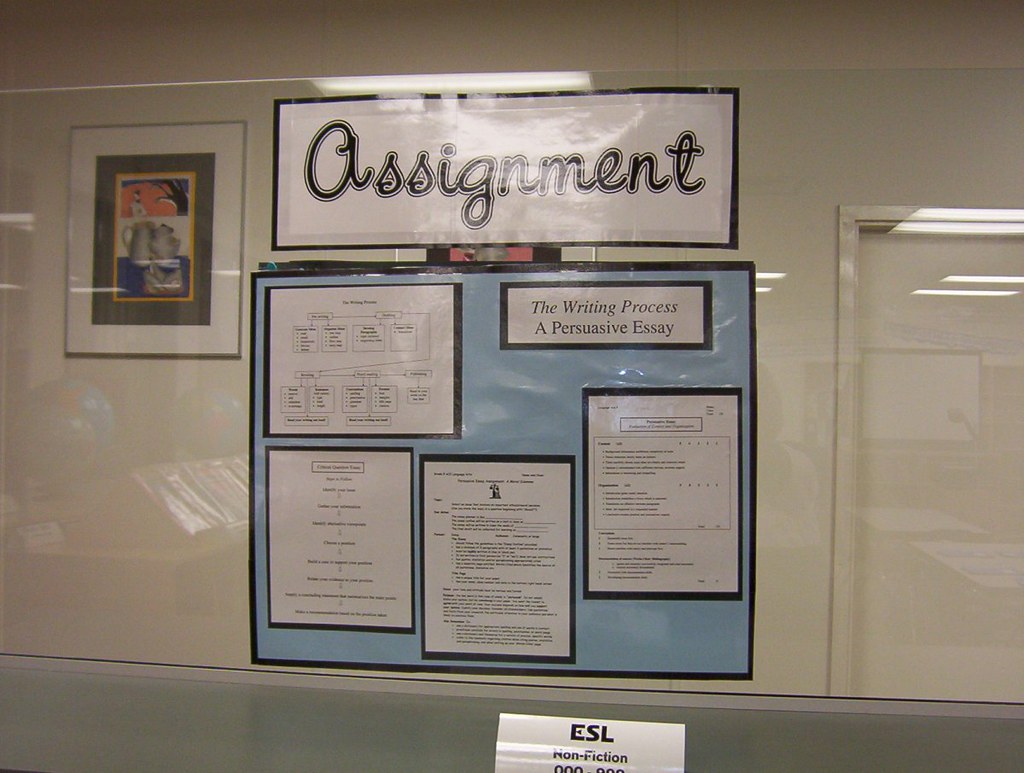Are you tired of spending hours on end staring at a blank document, struggling to find the right words to convey your thoughts? Do you wish there was an easier way to improve your writing skills without sacrificing quality? Well, the good news is that the future is here, and it’s in the form of AI writing. In this blog post, we’ll explore how AI writing can revolutionize the way you approach your assignments and take your writing skills to the next level. So, are you ready to embrace the AI writing revolution? Let’s dive in!
The Future of Writing: How AI is Revolutionizing Assignment Writing
The rise of artificial intelligence (AI) has brought about a major shift in the way we approach writing assignments. With AI revolutionizing assignment writing, students and professionals alike can now produce high-quality content in a fraction of the time it would take them to do so manually. This is made possible by the use of AI-powered tools that help with tasks such as grammar and spell-checking, plagiarism detection, and even generating content. These tools are designed to improve the overall quality of written work while also saving time and effort. However, it’s important to note that while AI can be incredibly helpful, it’s not a replacement for human creativity and critical thinking skills. Instead, it should be seen as a tool to enhance our writing abilities and streamline the writing process. As we move forward into the future, it’s clear that AI will continue to play an increasingly important role in the world of writing and academia.
Understanding the Impact of AI on the Writing Process in Assignments
As technology continues to evolve, it has become more involved in our everyday lives. The emergence of Artificial Intelligence (AI) is no exception, and its impact can be felt across all industries. In the world of academics, AI technology has revolutionized the writing process by automating mundane tasks such as proofreading, plagiarism checks, referencing and formatting into a few simple clicks. This allows writers to focus on core aspects of their work such as research and analysis with ease.
In addition to simplifying assignments’ mechanics, AI-powered systems have also enhanced accuracy in content creation through automated grammar checkers that identify grammatical errors that human editors often miss. However; the rise of virtual assistants raises concerns regarding ethical implications related to academic dishonesty where students could plagiarize easily while hiding behind bots for example.The goal now should be integrating this advanced software mindfully while still valuing creativity and originality ultimately improving student outcomes while preserving academic integrity .
Enhancing Your Content with AI: A Guide for Improved Assignment Writing
Incorporating AI into your writing process can significantly enhance the quality of your assignments. Natural Language Processing (NLP) is one of the most important AI tools that can help you improve your writing skills. NLP algorithms can analyze your text and provide suggestions for grammar, syntax, and vocabulary. They can also identify areas where your writing may be unclear or confusing to readers. Another important tool is machine learning, which can help you generate ideas for your assignments by analyzing large amounts of data and identifying patterns and trends. By using these AI tools, you can streamline your writing process and produce high-quality assignments in less time. However, it’s important to remember that AI tools are not a substitute for critical thinking and creativity. You should always use them as a supplement to your own skills and knowledge to produce the best possible work.
Keeping Up with Modern Trends in Academic Writing
As technology continues to advance, so do modern trends in academic writing. Staying up-to-date with these trends is essential not only for academic success but also for staying competitive in a fast-changing world. The rise of AI has brought about significant changes and improvements to the assignment writing process. One notable trend is the use of AI-powered tools that help enhance content creation.
These tools can aid writers in various ways such as suggesting relevant synonyms, identifying grammatical errors, and offering stylistic suggestions. This not only saves time but also dramatically improves the quality of written work by providing objective feedback and broader perspectives on writing styles.
Incorporating AI into your workflow may seem intimidating at first, but it’s vital to embrace this technology if you don’t want your writing skills to become obsolete. Experimenting with different AI software can be beneficial since some are better suited for certain types of essays or assignments than others.
Ultimately, keeping pace with modern trends while embracing new technology is key to producing high-quality papers that meet today’s standards efficiently and effectively.
Streamlining Your Essay-Honed AI Tools for Efficient and Effective Assignment Writing
The Benefits of AI Writing Tools for Assignment Writing
Using AI writing tools for assignment writing can greatly enhance your productivity and efficiency. These tools allow you to quickly check for grammar errors, plagiarism, and even generate topic ideas. With the help of AI-powered writing assistants, you can optimize your content for SEO by identifying keywords and phrases relevant to your audience.
Moreover, these tools facilitate collaboration among authors working on a single document in real time – perfect for group assignments or peer reviews. Utilizing AI-driven technologies not only helps streamline the revision process but also ensures that written work is top quality before submission.
Overall, incorporating AI into academic writing provides immense benefits that ultimately lead to better grades and improved success rates in academia.
How to Choose the Right AI Writing Tool for Your Assignments
When it comes to using AI tools for assignment writing, choosing the right one is crucial. Keyword optimization and content enhancement are important features to look out for in an AI writing tool. Some popular options include Grammarly, ProWritingAid, and Hemingway Editor, which all provide different benefits such as grammar checks, readability analysis, and style improvements. It’s important to assess your own needs as a writer and student before selecting an AI tool that will best suit them. Ultimately, incorporating the right AI tool into your workflow can lead to more efficient and effective assignment writing processes.
Maximizing Efficiency with AI Writing Tools: Tips and Tricks
When it comes to using AI writing tools for assignments, maximizing efficiency is key. One important tip is to utilize the tool’s features to their fullest potential. This means taking advantage of things like auto-correct, suggested phrasing, and even thesaurus suggestions. Another important trick is to customize the tool to your writing style. Many AI writing tools allow you to input your own writing samples, which helps the tool better understand your unique voice and tone. Additionally, don’t be afraid to experiment with different tools and find the ones that work best for you. With these tips in mind, you can streamline your writing process and produce more efficient and effective assignments with the help of AI technology.
The Future of Assignment Writing: AI and Beyond
As we move towards a more technologically advanced future, the role of AI in assignment writing is set to become increasingly important. With the ability to analyze data and generate content at a speed that is impossible for humans to match, AI tools are becoming an essential part of the writing process. The impact of AI on assignment writing is already being felt, with students and professionals alike using these tools to streamline their work and improve their efficiency. As we look to the future, it is clear that AI will continue to play a major role in the writing process, revolutionizing assignment writing as we know it.
Moving Forward with Ease- Why You Need to Embrace AI in your Paper-Writing Process Now.
Embrace AI now for efficient and effective assignment writing. Artificial Intelligence is a powerful tool that can assist you in streamlining your essay-honed skills to produce high-quality assignments on time. With AI, you can research faster, organize notes efficiently, and write with precision. It’s important to understand that while AI cannot replace human creativity or critical thinking skills, it can aid in enhancing the overall quality of the content produced.
Moreover, personalization is a key aspect of machine-assisted technologies when it comes to improving assignment writing outcomes. The use of AI enables personalized learning experiences where students receive tailored feedback on their writing styles, weaknesses and strengths.
Incorporating machine assistance into academic writing helps bridge gaps between desired performance standards within academia and what students produce as assignments Additionally, by utilizing artificial intelligence tools effectively at an early stage puts one ahead not only academically but also professionally in future endeavors.

Personalized Learning through Machine-Assisted Technologies: Improving your Assignment writing outcomes
Artificial intelligence is transforming the way we learn and write. With machine-assisted technologies, students can receive personalized feedback and suggestions to improve their writing skills. AI tools such as Grammarly and Turnitin can help identify grammatical errors, plagiarism, and provide recommendations for better sentence structure and vocabulary usage.
By leveraging AI, students can receive instant feedback on their writing assignments, allowing them to make necessary changes before submitting their work. Additionally, AI-powered writing assistants can help students identify areas where they need improvement and provide resources to help them develop their skills.
However, it’s important to note that AI tools are not a substitute for human feedback. While they can provide valuable insights, they should be used in conjunction with the guidance of a teacher or tutor. By embracing machine-assisted technologies, students can improve their writing outcomes and become more confident in their abilities.

On-demand writing assistance – how to harness the power of artificial intelligence to achieve academic success
The Rise of AI Writing Tools: A Game-changer for Assignment Writing
The rise of AI writing tools has been a game-changer for assignment writing, making it easier and more efficient than ever before. With the ability to analyze data and generate content in seconds, AI tools have become an indispensable part of the writing process. These tools can help students improve their writing skills by providing personalized feedback, suggesting improvements, and even generating content based on keywords. By harnessing the power of AI, students can achieve academic success by producing high-quality assignments that meet the requirements of their professors. With on-demand writing assistance and AI-powered content generation, students can save time and effort while improving their grades.
Advantages and Limitations of AI Assistance in Academic Writing
Artificial intelligence has revolutionized the way we approach academic writing. With AI assistance, students can now generate ideas, check grammar, and even get suggestions for improving their writing. The advantages of using AI in academic writing are numerous, including increased efficiency, improved accuracy, and reduced stress levels. However, there are also limitations to consider. AI cannot replace critical thinking skills or creativity, and it may not always understand the nuances of language or context. It is important to use AI as a tool to enhance your writing rather than relying on it completely. By understanding the advantages and limitations of AI assistance in academic writing, you can make informed decisions about how to best utilize this technology for your success.
Top Tools to Boost Your Assignment Writing with Artificial Intelligence
Grammarly: This tool uses AI to analyze your writing and provides suggestions for grammar, spelling, and punctuation errors. It also offers suggestions for sentence structure and vocabulary enhancement.
Turnitin: This tool uses AI to check your paper for plagiarism by comparing it to a vast database of academic sources. It also provides feedback on grammar, spelling, and punctuation errors.
By utilizing these AI-powered tools, you can enhance the quality of your assignment writing while saving time and effort. With the ability to catch errors and provide suggestions for improvement, these tools can help you achieve academic success while ensuring originality and high-quality writing.
Mastering Your Craft with the Help of AI: Best Practices for Using Machine Learning in Assignments
With the advent of AI-powered writing tools, it has become increasingly easier to automate certain aspects of the writing process. However, this doesn’t mean that students should completely rely on these tools for their assignments. To get the best results, students must understand how to use machine learning algorithms effectively and integrate them into their workflow without compromising originality and authenticity. Some best practices include using AI-powered tools for proofreading, grammar checking and generating ideas while also practicing good research habits to enrich paper quality. By utilizing these technologies efficiently, students can deliver top-notch assignments quickly and accurately while improving their overall writing skills at a faster pace than traditional methods allow.

The Benefits and Challenges Associated With Leveraging Artificial Intelligence In Academia
Artificial Intelligence (AI) has been a game-changer in the academic world, revolutionizing the way students approach assignments. Leveraging AI tools can significantly enhance the quality of work produced, making it easier to meet deadlines and achieve better grades. The benefits of using AI in academia are numerous, including improved writing skills, personalized learning, and on-demand writing assistance. However, there are also challenges associated with this technology. One of the major concerns is the potential for plagiarism, as AI tools can easily generate content that is similar to existing work. Another challenge is the ethical considerations surrounding the use of AI in academic spaces. It is important for students to navigate these challenges carefully and use AI tools responsibly to avoid any negative consequences. Overall, the benefits of leveraging AI in academia outweigh the challenges, and students who embrace this technology are likely to see significant improvements in their academic outcomes.

How To Navigate The Ethics Of Using Artificial Intelligence In Academic Spaces For Better Results
Navigating the Ethics of Using Artificial Intelligence in Academic Spaces for Better Results
The integration of artificial intelligence in academic writing has raised considerable ethical concerns, especially regarding plagiarism and authenticity. However, when used correctly, AI tools can support a writer’s critical thinking and creativity without compromising on ethics.
One vital consideration is to use AI-powered tools that uphold strict privacy policies to protect the user’s proprietary information. It is also essential to ensure that all content generated using these tools are authentic by cross-checking them with sources from reputable places such as journals or books.
While it may be tempting to rely solely on an AI tool for writing assignments, students must exercise caution and balance their use with human expertise. This way, they can get a more nuanced perspective and develop necessary skills such as research methodology or critical analysis.
As technology continues to advance at breakneck speed, writers must continue addressing ethical challenges associated with integrating AI into academic spaces carefully. Ultimately this enables them access better results while maintaining high standards of ethics within academic circles.
In conclusion, the use of AI in assignment writing has revolutionized the way students and professionals approach writing. With powerful tools at their disposal, writers can produce high-quality content with ease, saving time and enhancing productivity. It is important for every individual to take advantage of this technological advancement by keeping up with modern trends in academic writing and understanding the impact of AI on the writing process. As we navigate through ethical considerations and overcome challenges associated with leveraging artificial intelligence in academia, it is clear that investing in personalized learning through machine-assisted technologies will lead to better assignment outcomes. By embracing AI tools now, we can streamline our paper-writing process and achieve academic success like never before.
